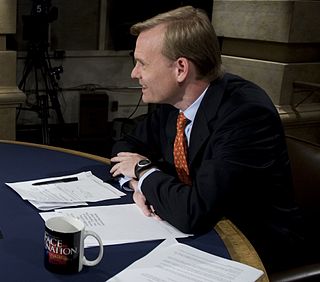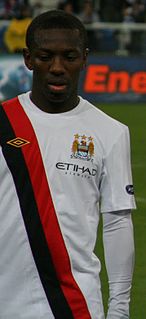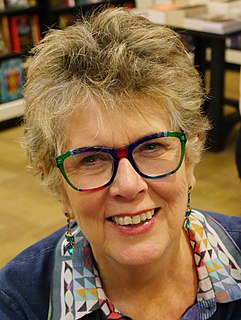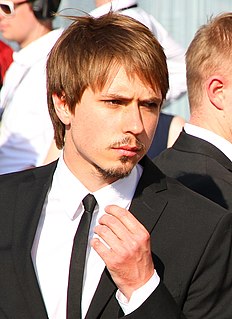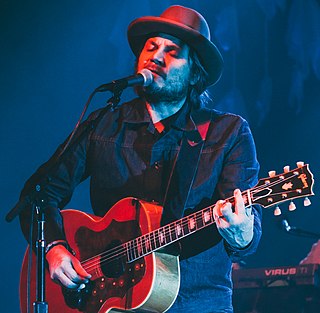A Quote by Arianna Huffington
One of my big milestones came when I turned forty and promised myself to stop worrying about all the things I thought I might do but never really would. I was very relieved when I realized that you can actually complete a project by dropping it. That's how I "completed" learning to cook and learning German, becoming a good skier, and a list of other things too long to recite!
Related Quotes
I'm still learning to be the best actor I can be, and I have a long way to go to get to the level I would like to be at. My focus is still 100% acting acting acting. Once I hit a point where I feel very comfortable as an actor - because you can never stop learning, I don't care how comfortable you get, you can never stop learning - but once I hit a point where I can get that comfort level of taking on the task of directing and having the confidence in myself to have people's respect when I give them direction, that's definitely something I want to do someday.
College was really good for me. It's where I did my growing up, learning how to live on my own and to be myself. That really helped. I've eased my way into everything since then, so it doesn't feel too crazy. It's just about being the same person, whether good things come my way or bad things come my way, and to enjoy the opportunities I have.
I remember learning German - so beautiful, so strange - at school in Australia on the other side of the earth. My family was nonplussed about me learning such an odd, ugly language and, though of course too sophisticated to say it, the language of the enemy. But I liked the sticklebrick nature of it, building long supple words by putting short ones together. Things could be brought into being that had no name in English - Weltanschauung, Schadenfreude, sippenhaft, Sonderweg, Scheissfreundlichkeit, Vergangenheitsbewältigung.
I feel like I turned down a lot of things that I wish I hadn't. But you never know when you're younger. I don't have regrets about certain things I turned down. Those films would have required things of me that would have been challenging, and they ended up being really good movies. But I was never a careerist, I never thought in those terms. I'd be like, "Oh, I'm tired. I don't want to work."
People who excel at book learning tend to call up from memory what they have learned in order to follow stored instructions. Others who are better at internalized learning use the thoughts that flow from their subconscious. The experienced skier doesn't recite instructions on how to ski and then execute them; rather, he does it well "without thinking," in the same way he breathes without thinking. Understanding these differences is essential.
I like the idea of becoming [fairly] good at lots of things rather than very good at just one thing. So it would be nice to be okay at the guitar or at the piano, a reasonable cook, perhaps able to fix your car or do some basic carpentry, and be able to write the odd article. Rather than being super good at one tiny thing, to be kind of average at lots of things. It might mean that you have a more kind of enjoyable, complete life.
I think I always thought of the guitar as the vehicle to be able to make some musical idea up. The only appeal to learning more chords was having more chords to put into songs. I never got too wrapped up in becoming technically good. So writing songs happened pretty simultaneously with learning how to play the guitar.

